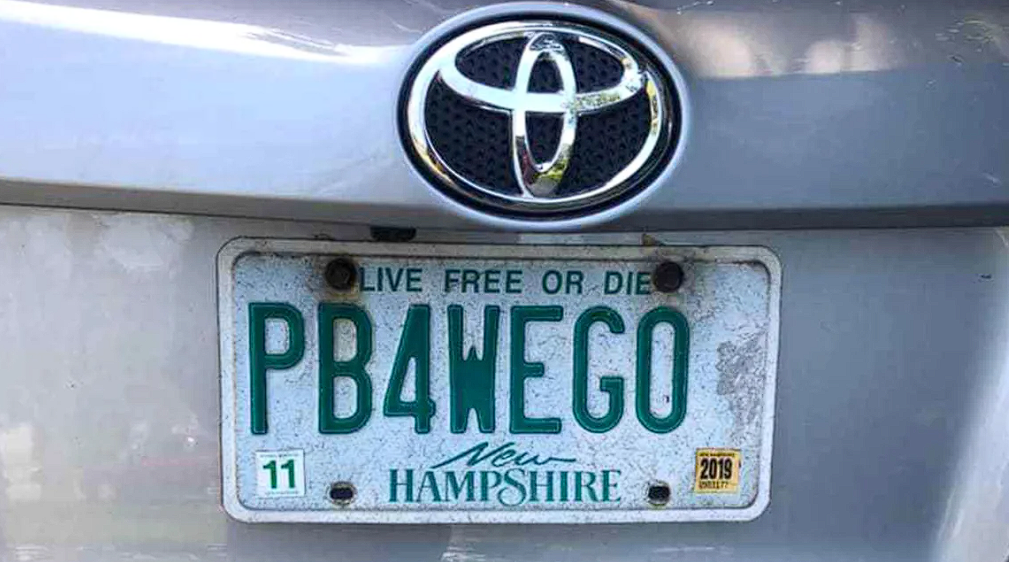Custom license plates allow car owners to add a personal touch to their vehicles, offering a unique way to express their individuality. For an additional fee, drivers can create personalized plates featuring custom messages or combinations of letters and numbers. These vanity plates are a popular way for people to showcase their creativity and share something meaningful about themselves. However, state governments and motor vehicle departments sometimes reject certain plates if they consider the content to be inappropriate or controversial.

Wendy Auger, a resident of Rochester, New Hampshire, recently faced such a situation after proudly displaying her custom license plate for fifteen years. Her plate, featuring the playful phrase “PB4WEGO,” often brought joy to those who saw it as she traveled the roads of New Hampshire. A bartender in the Gonic neighborhood, Auger was surprised when the DMV deemed her plate offensive.
To Auger, this decision felt like a violation of her freedom of speech, a fundamental right. She argues that the phrase “pee before we go” is a common piece of advice given by parents to children and believes there is nothing inappropriate about it.

Auger didn’t choose her plate on a whim; after a lengthy search, she was excited to discover that the phrase was available. She promptly selected “PB4WEGO” for her New Hampshire license plate, especially since the state had recently increased the character limit for vanity plates from six to seven.
The state has clarified that stricter rules for vanity plates were put in place years ago following a court order from the NH Supreme Court.
Now, the question arises: Should Auger be required to replace her beloved license plate after fifteen years?







